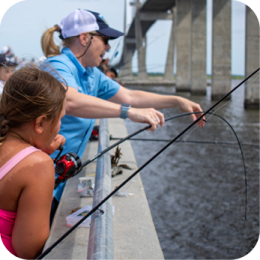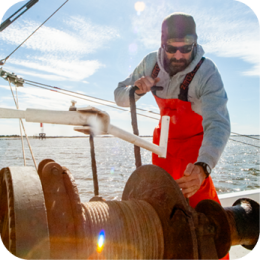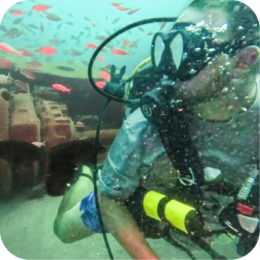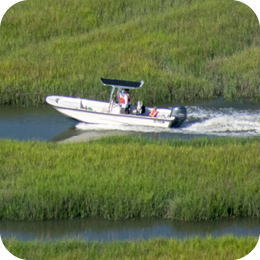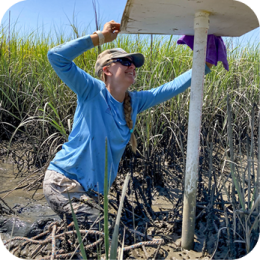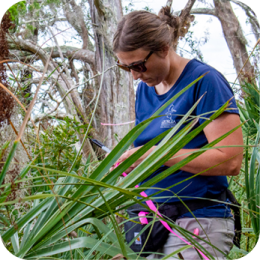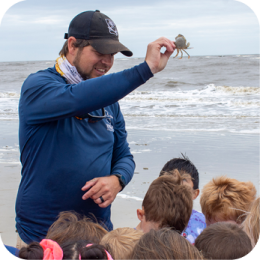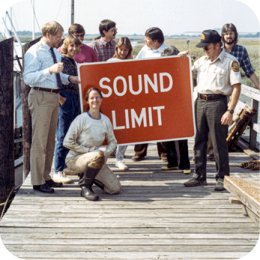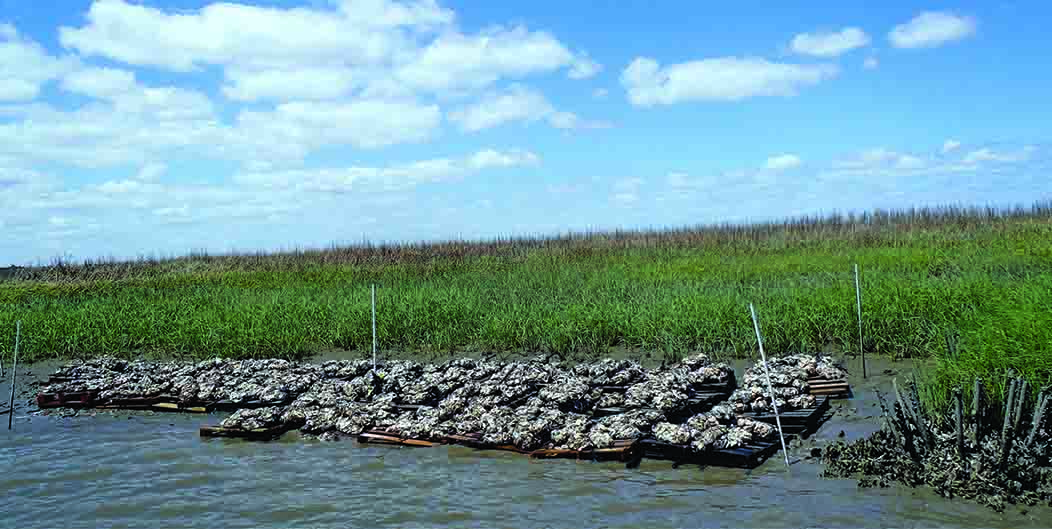
When General Oglethorpe and his colonists landed in Georgia, they found an abundance of wildlife unlike anything they had ever seen. Flocks of passenger pigeons blackened the sky, the forests resounded with the sounds of ivory-billed woodpeckers, and the shorelines of Georgia’s tidal waterways were covered with living oyster reefs. We know the fate of the passenger pigeons and ivory-billed woodpeckers, but fortunately, oysters have endured to modern times albeit in much lower abundance due to disease, loss of habitat and overharvest. Today, efforts are underway to rebuild Georgia’s oyster populations to historic levels.
Recognized as a keystone species in our estuaries, oysters provide a myriad of ecological services such as enhancing water quality by filtering up to 1.5 gallons of water per hour. Oyster reefs stabilize shorelines, protecting them from the erosive forces of tidal currents, wind-driven waves, and boat wakes. These reefs also provide habitat for a multitude of birds, mammals, crustaceans, and fish. Lastly, healthy oyster populations provide a delicacy prized by seafood lovers.
Using recycled oyster shells provided by local St. Simons Island restaurants, Catch 228 and Coastal Kitchen, Coastal Resources Division staff recently completed two oyster restoration projects in Glynn County. The Coastal Conservation Association and Coastal College of Georgia provided volunteers.
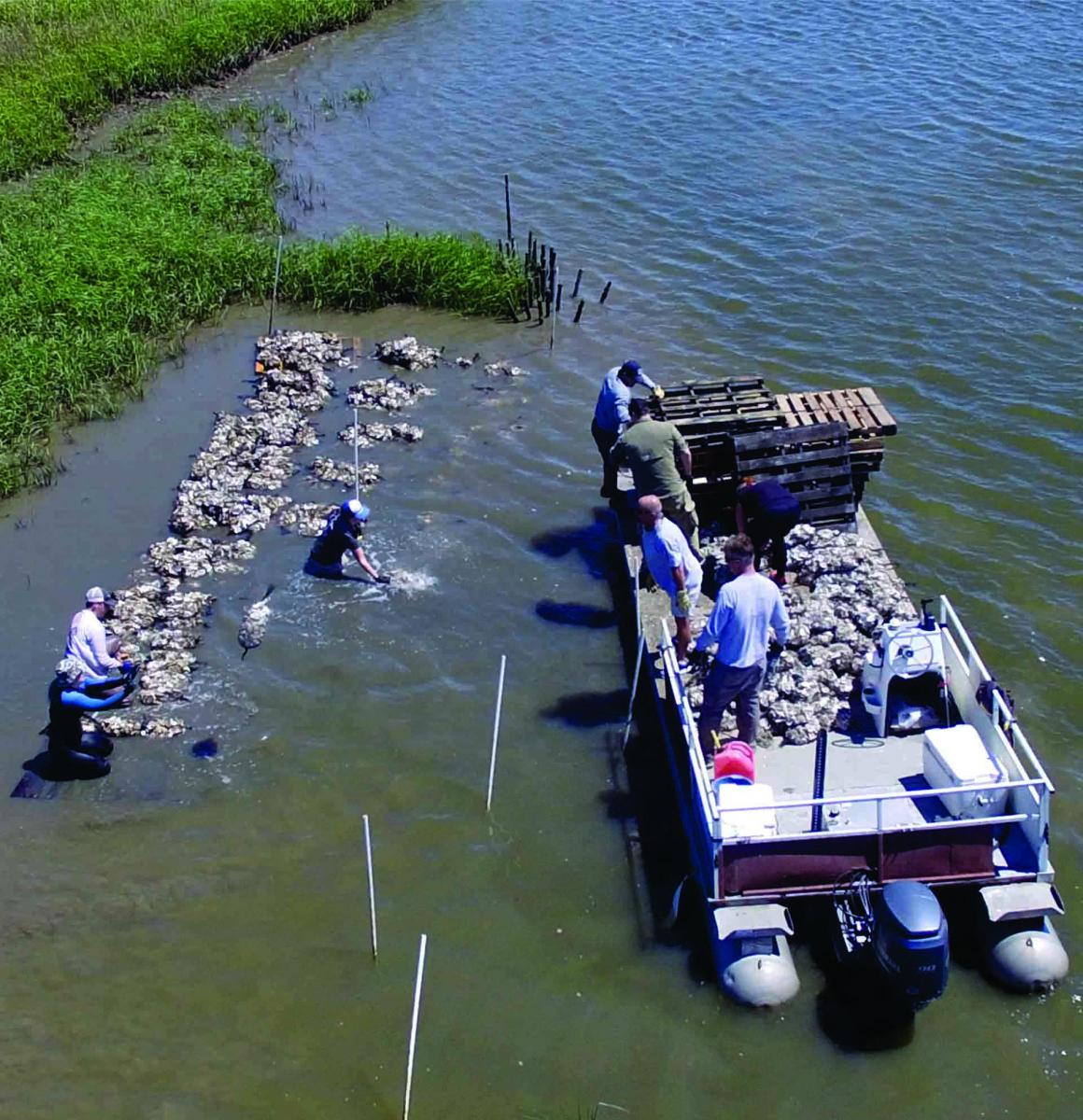
Three tons of bagged oyster shells were deployed along 300 linear feet of the Back River shoreline near the F.J. Torras Causeway connecting mainland Brunswick to St. Simons Island. Over four tons of bagged oyster shells were placed on the shoreline of Jove Creek near Marker 238 along the Atlantic Intracoastal Waterway.
Based on the results of similar projects, these bagged oyster shells should become colonized with larval oysters eventually creating a living oyster reef. Once that happens, other marine life, wading birds, and mammals such as minks and raccoons will utilize the reef for foraging habitat and shelter.
Funding for oyster reef restoration projects is provided thru Georgia fishing licenses fees, donations from conservation groups, and Federal Aid in Sport Fish Restoration.
